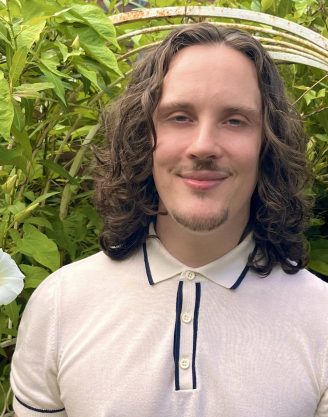Welcome to Mindful Meadow Counselling
A confidential space to explore the thoughts, feelings and challenges in your life
Welcome to Mindful Meadow Counselling. My name is Luke and I am a counsellor offering short term and longer-term therapy face to face, online or by telephone.


Counselling in a non-judgmental, safe space
Counselling is a personal journey, my aim is to make counselling more accessible for people of the LGBTQIA+ Community.
In addition the above, I do work with many clients who may not identify within the LGBTQIA+ Community, but still wish to seek counselling through Mindful Meadow.
I provide face to face, online and telephone counselling.
I am a fully qualified counsellor, with experience across a range of different issues. Please see the 'Areas I can help with' section, for further details.
About Me
Hi there, my name is Luke. I'd like to welcome you to Mindful Meadow. I believe we should all have the opportunity to have a safe space where we are able to share our thoughts and feelings, at our own pace. I understand taking that first step towards this, can at times, often feel overwhelming.
What is it like for you to be heard, understood and accepted for who you are?
How counselling can help you
When we take the time to understand ourselves on a deeper level, we allow ourselves to grow in confidence and self-esteem, gaining a better understanding of our lives, relationships and our sense of self.
Through our sessions together, we can begin to understand what is causing you to feel stuck, anxious or worried. Helping you create a brighter path forward, that feels manageable and safe. Helping you to live your life in a healthier and happier way.
In addition to the above, I am a LGBTQ+ Affirming therapist.
Our next steps together
If you would like to have a chat with me before booking a session, I offer a free 20 minute space where you are able to discuss a way forward and to ask any questions you may have regarding the process of therapy and how I work.
Please feel free to contact me on the 'contact' option on the website, leaving your name and number with a brief summary of your query and your current availability to be contacted and I will aim to get back to you as soon as I am able to.




"We think we listen, but very rarely do we listen with real understanding, true empathy. Yet listening, of this very special kind, is one of the most potent forces for change that I know."
Carl Rogers
My Qualifications
- CPCAB Diploma in Therapeutic Counselling
- CPCAB Counselling skills and Theory
- CPCAB Certificate in Counselling Skills
- Advanced Diploma in English Speech & Drama
Training
*Working with difference, diversity and inclusion
*City & Guilds Suicide Prevention Certificate Training
*Understanding Depression and Anxiety
*Introduction to online and telephone working
*Understanding ADHD & Neurodivergence
Ethical Practice
I am a person who is committed to good professional and ethical practice. I work within the guidelines of the British Association for Counselling and Psychotherapy (BACP) which I am bound by their Ethical framework. In addition, I have enhanced DBS Certificates to work with vulnerable adults, children and young people.
My Approach
I work from a Person Centered approach. This humanistic approach allows the client a safe, genuine and non-judgmental space to explore their thoughts and feelings at their own pace.
My aim is to help each client make sense of their lives, to begin to help make sense of what may be going on to cause you to feel low, anxious, depressed, worried or confused. We can often begin to explore our family environment and our childhood/upbringing to help make sense of who we are today.
If we take the time to explore our inner world, we begin to understand ourselves on a deeper level. With time, care and a self compassion, we can begin to develop a healthier, positive, and happier path forward, that allow us to walk a brighter path forward in our own lives and we can begin to foster self-acceptance from within. Gaining clarity and being able to manage our day to day lives in a lighter way than before.
Fees & availability
I offer a free 20 minute appointment, where you are able to ask any questions you may have regarding the process of therapy and how I work. We will go through a few questions together, to help me understand what is currently going on for you and to see if we are a good 'fit'.
Sessions are offered at the rate of £55 for individuals on a weekly basis at a regular time for 50 minutes.
Concessions are available when appropriate, if you would like to ask about this, please feel free to send me a message.
My work is regularly supervised, I ensure that I attend regular training and development sessions to keep my professional practice up to date, ethical and safe.
As counselling is an evolving process, I offer open ended counselling. This doesn't necessarily mean that the client will be working longer term. However, what it does mean, is it is the client's choice of how many sessions they would like. This is something we would discuss at the start of therapy.
Areas I can help with
I have experience working with people with a wide variety of issues. See below some of the areas I work with. Please do enquire if there is an issue you would like to discuss that's not on this list, as there are additional issues that I work with.
Sexuality and Gender Identity
Anxiety
Depression
Sexual abuse/trauma
Panic attacks
Relationship problems
Grief, loss or bereavement
PTSD
Lack of confidence and self esteem
Anger
Intrusive thoughts
Problems with family/parental relationships Issues relating to college/university
ADHD / Neurodivergence
Some frequently asked questions
Many therapists tend to view Counselling as ‘short-term’ work; when someone has a problem that can be looked at and discussed in a clearly-resolvable way. This work often requires undertaking sessions for a certain number of weeks, to explore, discover and clarify a way forward. Therapy is a word used more to describe ‘long-term’ work; discussion that tends towards substantial issues and things that might be life-changing on a deeper level.
Whether counselling or therapy work best as a short- or long-term option depends on the client though, and the difficulties they are facing. In some cases counselling can prove helpful as a continuing, longer-term option, or therapy can help resolve an issue in just a few sessions.
There’s no fixed or ideal length of time for the counselling process; it varies from person to person and will often depend on the depth of the issues they are facing. While I can work on an open-ended basis with clients, I find it is helpful for us to both agree before we start on undertaking a certain number of sessions and reviewing where we are at once we reach that point. You are able to decide how long your therapy will last, and in return my aim is to make sure therapy continues for only as long as it is of benefit to you.
This depends on what your needs are. Some people find that after only a very few sessions they have some clarity and focus and are ready to end the therapy. Other people value the ongoing support and relationship with me and will continue to come for weeks, months, or even years. There is no 'one-size-fits-all' when it comes to therapy.
My aim is to reply to any new requests within 48 hours. I provide a free of charge 20 minute space to talk through what has led you to reach out for support and what you are looking for from therapy. The length of time it may take to secure an appointment can depend on current availability. Together we can discuss a suitable date and time that works for us both going forward.
Confidentiality is one of the main ways in which therapy differs from many other forms of helping - for example, talking to friends or family can rarely offer the same degree of confidentiality as talking to a counsellor. Because of this confidentiality, you will find that - as you get used to coming for therapy - you are freer to talk about whatever you wish to.
No therapist can offer 100% confidentiality: there are some situations where the law requires disclosure of risk (e.g. certain child protection issues) and in common with most other therapists, there are some situations where I may not be able to keep total confidentiality. In particular, if someone tells me that they are thinking of harming themselves in a way that I believe puts them at serious risk, or if someone tells me that they are doing something that could put others at risk, I may not be able to keep such information confidential. However, breaking confidentiality is rare, and only happens after talking to the person concerned.
When you come for counselling it's important that you feel free to talk about whatever is important to you. Sometimes, you may not be clear what those issues are. Having a friend or family member with you is not usually helpful because they may have their own agenda for you. Even if this is just that they want to be supportive, or want you to 'get better', this agenda can prevent us opening issues up. When you come for therapy, you may need to explore thoughts or behaviours about which you feel ashamed or embarrassed and you may censor yourself so as not to hurt someone, or you may find that what they want you to talk about is not really what you need to discuss.
Sometimes, family/friends can even be part of an underlying issue which needs to be aired and discussed. Usually, people who ask this question are nervous about coming for a session alone, or they are anxious for the person who is thinking about arranging sessions. This anxiety is quite normal, and you will not be forced to talk about anything you feel uncomfortable about - but you do need to be able to talk about whatever is important. For this reason, I do not see clients accompanied by friends or family
Feel free to contact me
Please feel free to get in contact if you are thinking about starting your counselling journey, I am happy to discuss any questions or queries you may have, before deciding whether counselling is something you wish to begin.
Please provide a brief outline of your reasons for seeking counselling, along with any questions you may have and I will get in contact with you as soon as possible.
©2023 Mindful Meadow
powered by WebHealer
